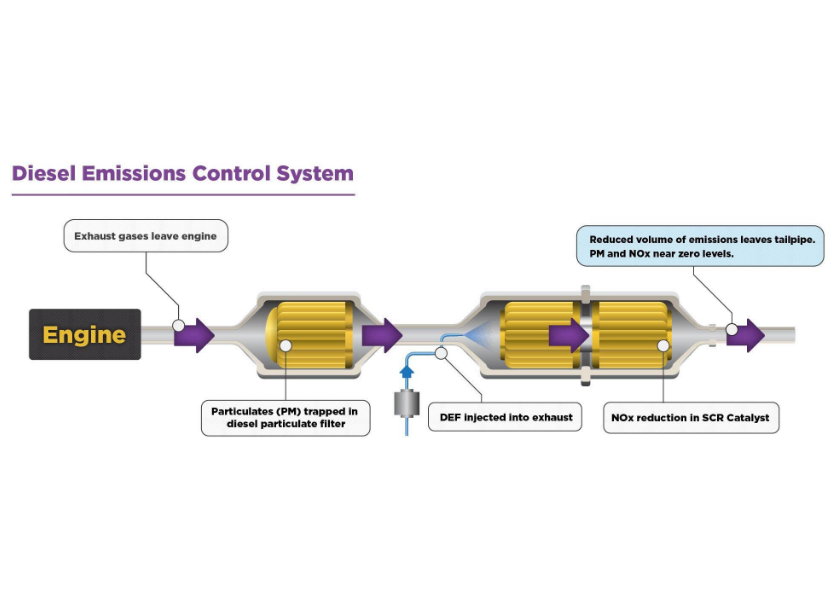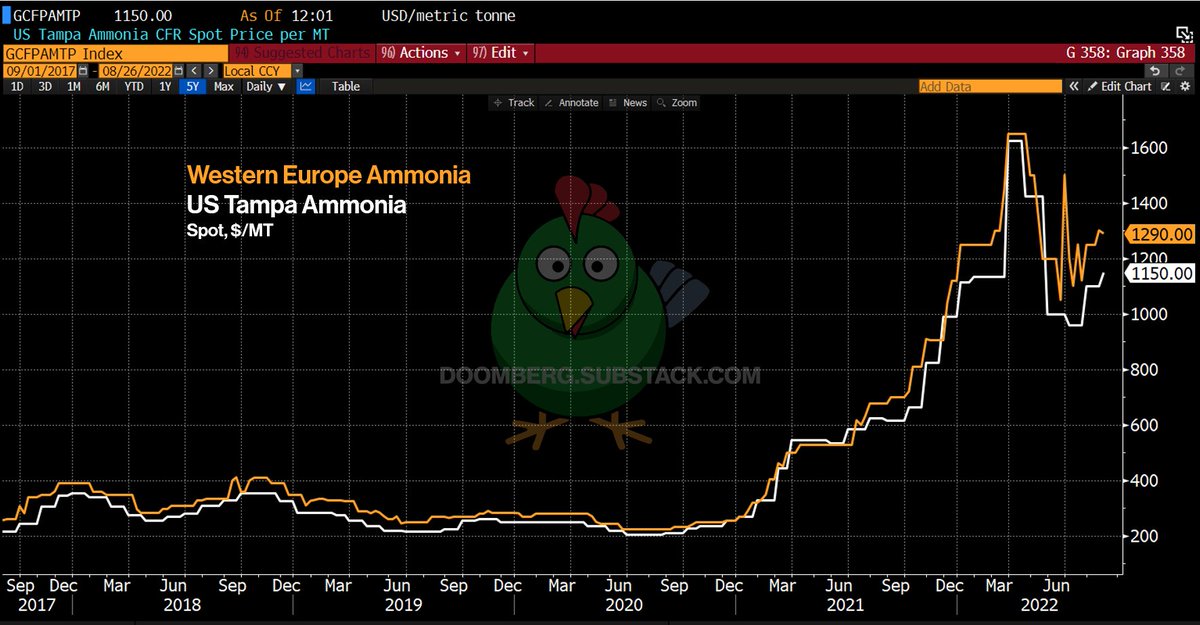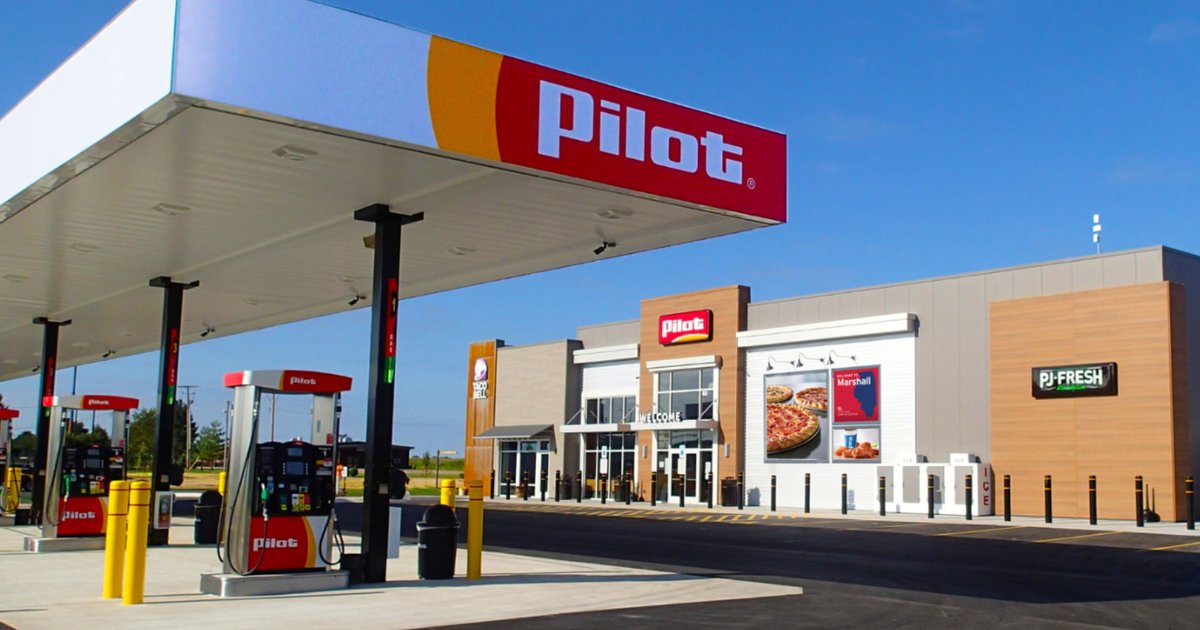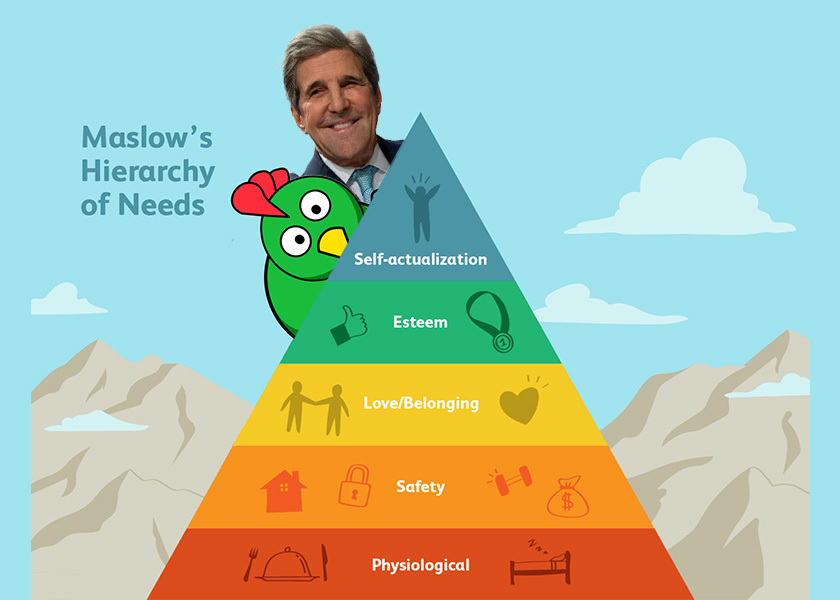
1/ Long-haul trucking is one of those industries that everybody relies on, but that few spend much time thinking about. The men and women who crisscross our highway system to deliver indispensable goods are among the unsung heroes of our economy.
2/ Without long-haul truckers our entire just-in-time economic system would quickly collapse, and almost all of them drive diesel trucks. Diesel is the engine of choice for providing superior torque at low RPM – critical for pulling heavy loads.
3/ Diesel engines are efficient, reliable, and durable. More than 97% of all Class 8 trucks currently on the road in the US are powered by diesel, a number we don’t expect to change any time soon.
4/ Diesel does have one major drawback – or at least it did. Left untreated, a diesel engine emits an enormous amount of soot (known as diesel particulates) and nitrogen oxides (NOx), both of which cause all manner of undesirable environmental damage.
5/ We’ve all observed the black clouds of nastiness that sometimes explode out of the exhaust of diesel trucks. Because of its toxicity profile, the US Environmental Protection Agency (EPA) has made eliminating NOx emissions a top priority for decades. 

6/ In 2008, the EPA mandated that diesel particulate filters be installed on all trucks larger than 3/4 ton. By 2010, a new technology designed to eliminate NOx emissions was ready for commercial deployment: diesel exhaust fluid (DEF) with selective catalytic reduction (SCR). 

7/ The EPA quickly mandated its use, as did many governments worldwide. The wide-scale adoption of DEF/SCR technology is undoubtedly one of the most impactful and positive environmental interventions of our time.
8/ The use of DEF is so important that new trucks incorporating the technology are designed to STOP WORKING if DEF runs dry. In essence, DEF represents a massive point source of risk in our economy. No DEF means no deliveries. Without deliveries, you have economic vapor lock.
9/ DEF – which is sometimes referred to as AdBlue, in the way that tissues are referred to as Kleenex – is a mixture of 32.5% urea and 67.5% distilled water. Urea, manufactured by reacting ammonia with CO2, can be thought of as a solid form of ammonia. 

10/ Of course, ammonia is used the world over as a nitrogen-rich fertilizer. Since ammonia is produced via the Haber Process using natural gas, we can now directly connect the global natural gas crisis to the heart of our delicate supply chain infrastructure.
11/ The natural gas crisis in Europe became a full-blown energy crisis that bled into China. With natural gas as the critical input into the production of fertilizer and countless other high-value goods, the crisis quickly morphed into a food and manufacturing crunch.
12/ In late 2021, Australia risked running out of DEF, a development that would have completely bricked its economy. In normal times, Australia imports most of its urea from China. Because of the energy crisis, China had halted urea exports.
13/ China’s urea export ban pushed Australia to the brink of economic catastrophe. At one point, the country was down to just seven weeks of AdBlue and refined urea supplies. The government hastily formed an AdBlue task force composed of top industry and government leaders.
14/ With strong government mediation and worldwide collaboration on the issue, Australia narrowly avoided a crisis. Nonetheless, echoes of the event continue to reverberate. Global prices for ammonia remain at historically high levels, especially in Europe. 

15/ In May of this year, an unfounded post warning of a DEF shortage in the US went viral on Facebook. According to the warning – reposted countless times across the platform – Union Pacific was limiting rail shipments to the truck stop operator Pilot Flying J.
16/ Pilot Flying J is a major retail outlet for products consumed by truckers, including DEF, and the warning went on to postulate that the rail embargo would catalyze a severe DEF supply crunch thereby throwing the US economy into a crisis. 

17/ Given how quickly the warning went viral – and the possibility that it might trigger a panicked run on DEF supplies – both Union Pacific and Pilot Flying J were quick to deny the rumors. No meaningful shortages of DEF materialized.
18/ What can the events in Australia and the US teach us about the delicate nature of our modern supply chains, the susceptibility of our economy to point source risks, and the dangers of weaponized disinformation on social media meant to attack such vulnerabilities?
19/ In the name of efficiency and in sacrifice of robustness, we have created significant interconnectedness between our primary energy and the agricultural markets. We grow corn to burn ethanol in our cars, thereby linking the corn market to gasoline futures.
20/ We grow soybeans to produce so-called renewable diesel, thereby linking animal feed and cooking oils to refining bottlenecks. And we use fertilizer as a pollution control in our trucks, thereby linking the European natural gas crisis to the general operation of our economy.
21/ By continuing to increase the interconnected nature of these seemingly unrelated sectors, we create tunnels through which the contagion of crisis in one market bleeds directly into the other. We also open risky channels to foreign adversaries who aim to wreak havoc.
22/ Although the source of the unsubstantiated Pilot Flying J rumors has not been fully determined, the affair does lay bare a major risk to our way of life. The speed with which panic-inspiring rumors can spread on social media is much faster than they can be debunked.
23/ The right rumor planted at just the wrong time by a clever enemy adds a new dimension to the armory of weapons available. The cost of trying pales in comparison to the amount of damage that can be imposed – an irresistible and dangerous asymmetry.
24/ There are no easy solutions to such dilemmas. We would be the LAST to advocate for censorship, and the environmental movement insists that anything “renewable” must be inherently good. The dangerous nexus of food, energy, and social media is here to stay. Godspeed. <fin>
• • •
Missing some Tweet in this thread? You can try to
force a refresh






